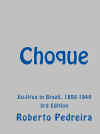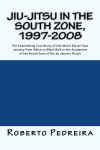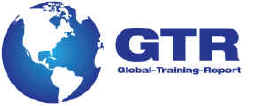by
Roberto Pedreira
*
*
*
*
*
*
|
Yamashita Yasuhiro (山下泰裕) talks about Judo and the Spirit of Olympism Gendai (ゲンダイ), February 14, 202, p. 26 By 春日良一 (Kasuga Ryōichi) Translated with notes by Roberto Pedreira JOC Chairman Yamashita's Mission should be to Spread Olympism, rather than to Win a Certain Number of Gold Medals (山下JOC会長の使命はメダル数よりオりンピズム普及だ)
The JOC Chairman's Objective is 30 Gold Medals (金30個を目標に掲げる). Individual Athletes should pursue medals (選手個人が求めるもの). * The Olympic Charter is being clearly denied. According to item 6 of the Olympic Charter, the Games are not supposed to be a competition between countries. Regrettably, the Japanese Olympic Committee (JOC, 日本委員会) is oblivious to this fact. Last month on January 30, in a meeting of the Domestic and Foreign Conditions Investigation Association (内外情勢調査会), the Chairman of the JOC, Yamashita Yashuhiro, promised to select at least 30 athletes who could win gold medals in the Tokyo Games (in 2020). It might have seemed that this was "lip-service" for important people in the political and business world, but on March 3 at a press conference in Tokyo regarding the plan for achieving the objectives of the games the JOC announced that its mission was to win 30 gold medals. When Yamashita was the General Manager of the Athlete Development section of the JOC he said exactly the same thing. This isn't what he should be saying as the JOC Chairman. There is no doubt that the success of the Tokyo Games to a large extent will depend on the performance of Japan's representatives. But as the "leader" in the movement to spread "Olympism" in Japan, medal hunting isn't what he should be emphasizing.1 According to the Olympic Charter, contests are supposed to be between individual athletes, not countries. Not to prove who can run fastest, jump highest, or is the strongest, but to show friendship even more so than dignity or victory, a friendly feeling that surpasses nationalism. Thereby athletes will be messengers of peace. The medal result is a matter for the individual athletes. Chairman Yamashita should be aware of this. Last year if I'm not mistaken, in episode 37 of the special NHK historical drama series, Taiga (大河), called Itaden, Kanō Jigorō's participation in the International Olympic Committee's meeting in Cairo2 was highlighted. Kanō made an emotional speech to the General Assembly to bring the Olympics to Tokyo in 1940. Sadly, he died on board the ship Hikawa-maru (永川丸) while returning home to Japan.3 In an epilog, Yamashita appeared, talking about Kanō. Yamashita said: "Judo was created by Kanō. When we think about Kanō sensei as a member of the IOC, judo was presented in the 1964 Olympics judo was shown.4 Now as the Chairman of the JOC I'm the inheritor of Kanō's aspiration (志, 意志) and mentality (精神). I want to be one of his successors." Yamashita became teary-eyed. (目には光るものがあった). If Chairman Yamashita inherited Kanō's "spirit" (精神), shouldn't he be more focused on creating a "peace society" (平和な社会) through sports rather than winning 30 gold medals? Kanō's aspiration was to successfully host the Olympics in Tokyo to avoid a great war.5 Winning gold medals might demonstrate a country's national power, but that is not the true spirit of the Olympics. That will depend on how much someone is committed to the goal of peace. ** Notes 1.The author is saying that Yamashita, as JOC Chairman, should be following the example of Kanō Jigorō, who Yamashita said he admired and wanted to emulate, and therefore should be looking at the bigger picture, i.e., the spirit of Olympism, leaving the pursuit of medals up to the individual athletes. 2. In March 1938. 3. In May 1938, at age 78, of pneumonia (New York Times, May 4, 1938). 4. As a demonstration sport. 5. The war wasn't avoided and the Olympics were cancelled completely until 1948, where they resumed in London.
Recommended Books by Yamashita
Videos by or about Yamashita on youtube.com Yamashita Instructional (with 佐藤宣践). Japanese title: 柔道ー基本と練習法 (Japanese only) Yamashita in (全日本柔道選手権大会 1977-1985. All-Japan Championships (Japanese only)
Other Judo Articles on GTR Kanō Jigorō's villa in Abiko City Gracie Judo Challenge 1 January 13, 1987 Gracie Judo Challenge 2 July 27, 1988 Keith Swartz Judo rev. Oswaldo Alves Judo Interview Judo Training for BJJ in Fujisawa, Japan Conversation (対談) between Yamashita and Masahiko Kimura
(c) 2020, Roberto Pedreira, All rights reserved.
|









